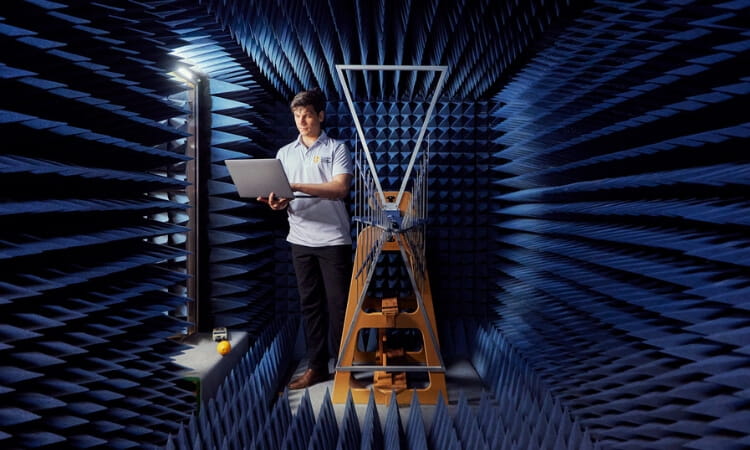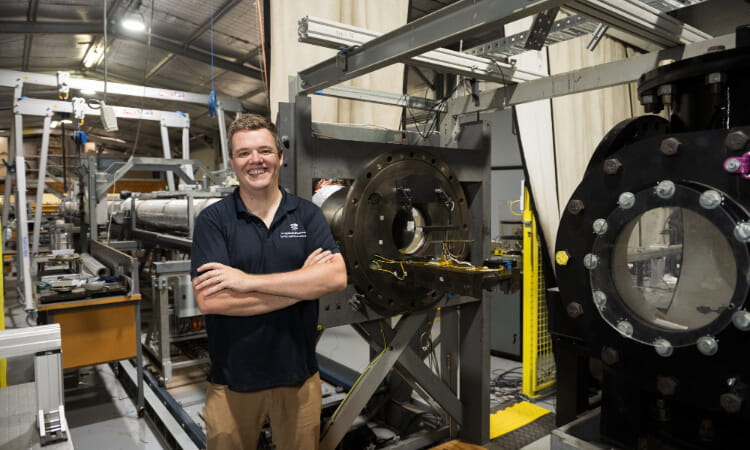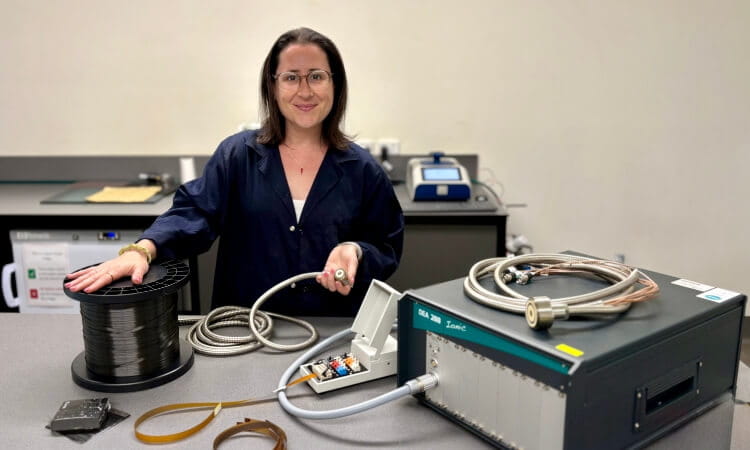Spotlighting our Research: September 2025

We are back with another University of Southern Queensland (UniSQ) research update – and what an impressive update it is.
A lot has happened since our last edition of Spotlighting our Research in June, including publications, a suite of international rankings, plenty of research success and more.
Check out all the latest developments and achievements!
Research News
Publications
To date in 2025, there have been 1,203 papers affiliated with UniSQ indexed in Scopus, compared to the total for 2024 of 1,701 publications. The publications quality to date in 2025 (with some uncertainty owing to the recent nature of the publications) is still high, with a field-weighted citation impact of 1.78 to date, and 80% of publications are in Q1 journals (compared to the long-term average of 72.1% over 2015-2025).
International rankings
US News Rankings: We have ranked among the world’s top universities by placing in the top 20 in Australia and top 300 globally. We placed equal 19th nationally (20th in Australia/New Zealand) and equal 278th worldwide in the 2025–2026 edition of the Best Global Universities Rankings, released in June. The rankings draw on Clarivate data to assess universities’ research reputation and academic performance at both global and regional levels. The result highlights our ongoing research strength, with strong rankings across several disciplines, including materials science, engineering, and space science.
Quacquarelli Symonds (QS) World University Rankings 2026: We are ranked in equal 410th position for 2026. Our overall score has improved seven points from 29.7 for 2025 to 36.7 in 2026.
Academic Ranking of World Universities (ARWU) 2025: We have maintained our rank in the 601-700 band of the ARWU (formerly the Shanghai Jiao Tong World University Rankings). These results include improvements in our scores for the number of publications in Nature and Science, as well as the overall number of publications. The ARWU scores institutions on six research-related indicators across four areas: Quality of Education, Quality of Faculty, Research Output and Per Capita performance using objective publicly available data.
HDR completions
To date in 2025, 96 higher degree by research (HDR) students have completed all requirements. In addition, 21 students are undertaking revisions, 21 are under examination, and a further 27 are in the process of submitting.
Research grant success
Our researchers have attracted commendable research grants successes in recent months.
- Professor Pingan Song has attracted $1.16 million in funding from the Australian Research Council (ARC) Mid-Career Industry Fellowship to lead a project on the upcycling of used agricultural irrigation plastics into cheaper, fire-safe building cladding.
- Professor Tracy Kolbe-Alexander will co-lead a University of Queensland-led project, which has been awarded $263,445 from the National Health and Medical Research Council Partnership Projects funding scheme, to develop and test health and wellbeing interventions for healthcare professionals in the living lab context of Springfield, Queensland.
- Professor Yan Li, along with Professor Rajendra Acharya, have been awarded $551,982 under the ARC Linkage Project funding scheme to develop a new AI tool to tool to better detect subtle emotional changes in the human speech to create a more accurate and efficient speech emotion recognition system.
- Professor Hao Wang, leading a team including Dr Siqi Huo and Associate Professor Lei Ge and collaborating with a plastic recycling company and a regional council, has been awarded $682,594 for an ARC Linkage Project to develop a novel chemical cross-linking method. This project aims to recycle ~200,000 kms of waste plastic film generated per year into a value-added feedstock for manufacturing strong, durable, sustainable plastic products such as cables and pipes.
- Dr Duc-Anh An-Vo and Dr Francis Gacenga have been awarded $455,848 by the Grains Research & Development Corporation (GRDC) to contribute to the GRDC Data Catalogue, to leverage the public release of the Catalogue to increase the scope of data assets it references while demonstrating the power of FAIR data to facilitate powerful analyses.
- Associate Professor Troy Jensen, Associate Professor Guangnan Chen and Professor Andrew Wandel have received $1.7 million in funding over three years from the GRDC for their project on air-operated sample probes. These probes will identify the parameters for accurate grain subsampling to validate the current protocols and develop new sampling technology designs for the agricultural industry.
- Also funded by the GRDC, Dr Kamrun Nahar has been awarded $240,000 to lead a research project on National Grower Network water quality impacts on herbicide efficacy. Justine Baillie, Michael Scobie, Dr Jackie Webb, and Dr Malcolm Gillies will also contribute to the project, which will develop resources to help growers in the Northern GRDC Region better understand the importance of water quality for effective weed management.
- Dr Jenny Wang and Professor Ingo Jahn have each been awarded $46,456 from the Department of Education under the National Industry PhD Program. Dr Wang’s project will develop a parametric insurance model to protect oyster farms from financial losses due to king tides and extreme heat events. Professor Jahn’s research will investigate how abrasive media blasting surface preparation systems and componentry can be tuned or re-designed to increase performance, efficiency, and safety in the maintenance of steel structures like bridges and ships.
- Associate Professor Syed Shams, Dr Hoa Luong (University of Otago) and Dr Dinithi Ranasinghe (University of Otago) have obtained a 2025 AFAANZ research grant for their project on internal CEOs and non-GAAP (generally accepted accounting principles) disclosure.
- Associate Professor Matthew Richardson, iLAuNCH Space Program Director, and Dr Tristan Shelley from the Centre for Future Materials (CFM), in partnership with AeroMech Pty Ltd, have received $20,000 in funding under the Queensland Engaging Science Grant Program. This funding will enable iLAuNCH, CFM and AeroMech to engage with over 300 high school students across Brisbane, Ipswich and Toowoomba through aerospace manufacturing-themed workshops starting in early October and continuing into early 2026.
- Professor Allan Manalo, Director (Centre for Future Materials), and Professor Bernadette McCabe, Director (Centre for Agricultural Engineering), have received $249,999 from the Queensland Department of Environment, Science and Innovation’s Queensland Germany Bioeconomy Collaborative Science Program for their project titled ‘Net-zero carbon cement from biomass wastes’. The aim of this project is to create a new type of cement technology using biomass wastes that has zero-carbon emissions, supporting Queensland’s transition to a zero-carbon economy in 2050.
- Dr Kirsty Owen from the Centre for Crop Health (CCH) has been awarded $1.54 million to lead the Northern Node of the Grains Research and Development Corporation – Soilborne Disease Initiative. This project aims to tackle the significant impact of soilborne diseases and nematodes on grain crops in Queensland. CCH Researchers, Dr Cassy Percy, Neil Robinson and Dr Stephen McDonald, will also contribute to this research project.
Research Spotlight: Regions and Communities
Community and the regions are central to our core values, and our researchers and leaders are actively engaging with strategic research opportunities to advance regional and community development.
Professor Celmara Pocock, who leads the Institute for Thriving Communities and Regional Development has been appointed to the recently formed Queensland Government Social Sciences Reference Group. Established by Professor Kerrie Wilson, the Queensland Chief Scientist, the group comprises 11 social science leaders and four ex-officio government members to bring together expertise in disciplines such as economics, sociology, communications, health, psychology, and criminology. The group’s work will focus on promoting the impact and visibility of social sciences in Queensland, fostering collaboration between government and researchers, and enhancing public understanding of the field’s role in addressing complex societal challenges.
We have formed a Collaboration Committee with CleanCo, a Queensland Government-owned company delivering clean energy solutions for Queensland businesses and communities, to evaluate and make recommendations regarding our research project proposals. The Committee will review history and heritage projects to be developed and, where applicable, funded by CleanCo.
A host of exciting projects centring the regions and communities are being conducted. One such project, led by Dr Aastha Malhotra, Dr Naomi Ryan, and Professor Amy Mullens, investigates the wellbeing experiences of social enterprise leaders operating in regional, rural, and remote areas of Australia. A key research output of this project is the Wellbeing Matters Guide: Peer Insights for Social Enterprise Leaders – A Regional, Rural and Remote Perspective.
The guide has garnered significant industry engagement, with national dissemination through UnderStorey, the knowledge platform of the peak body Social Enterprise Australia, and podcast features and panel discussions, including contributions to Impact Boom and the Business for Good Network. Reflecting its growing academic footprint, the project has also welcomed three undergraduate research students in 2025, including one through the Undergraduate Research Scholarship Program, to help extend its reach and continue deepening its contribution to the field.
The Southern Queensland and Northern New South Wales (SQNNSW) Drought Innovation and Adoption Hub, managed out of our Institute of Resilient Regions, continues to do great work increasing the drought resilience of producers, communities, and regions across its footprint. The last six months has seen significant wins and growth of impact for the hub, including over 170 activities across the region and a 54% increase in the number of resources created. Moreover, this work has increased its focus on producers, seeing producers now represent 51% of all participants. The hub has now also contracted a program of delivery with all four Queensland-based Natural Resource Managements (NRM) entities in its footprint (Desert Channels, Healthy Land and Water, Southern Queensland Landscapes and Burnett Mary Regional Group). These arrangements will drive a significant increase in activity in our more regional centres and a focus on the role the natural landscapes play in drought resilience.
Find out more about UniSQ’s Research.


